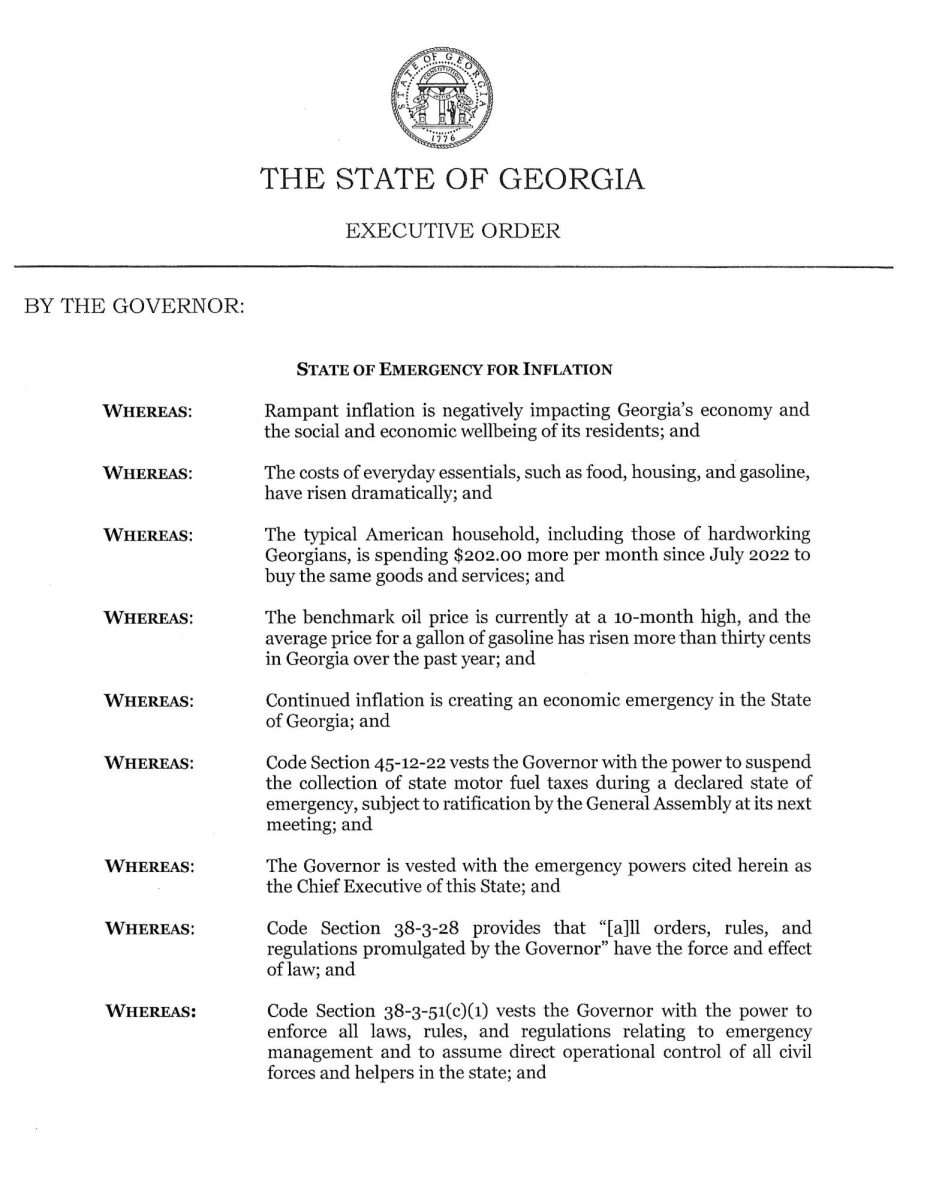On Tuesday, Sept. 12, Georgia Governor Brian Kemp announced a suspension of taxes on gas, which would go into effect on Sept. 13 and continue until Oct. 12. Kemp announced a state of emergency for Georgia, citing the recent high inflation, allowing him to pass an Executive Order to suspend the tax. Georgia had already previously been in a state of emergency in preparation for Hurricane Idalia.
According to Kemp’s press release, the “suspension of the excise tax will save Georgians 31.2 cents per gallon of gasoline and 35 cents per gallon of diesel fuel. When the gas tax was suspended from March through December of last year, 2022, Georgians saved roughly $1.7 billion at the pump.”
The press release references the last time Gov. Kemp suspended the gas tax, and how that tax suspension benefitted Georgians. According to the Atlanta Journal Constitution in a Sept. 12 article points out “the suspension… saves drivers — $150 million to $180 million a month.”
English teacher Shannon Patterson knows exactly how she’ll use that extra money.
“It’d be great to have extra money for use at the grocery store. That’ll be a huge savings for me that I can use for groceries to feed my family,” Patterson said.
Senior Catherine Amendola is indifferent towards the change.
“If you have a car that takes up a lot of gas then I guess that’s good, but my car’s tiny,” Amendola said.
While cutting the tax means lost revenue for Georgia funds, the AJC reports in the article “Kemp suspends Georgia’s fuel tax again, saving drivers at the pump” that surplus Georgia funds will be more than enough to cover the cut, which goes towards transportation expenditures such as “roads and other transportation projects.”
According to the Associated Press, Georgians don’t have to fear a loss of tax revenue affecting road maintenance or other transportation-related items in the state’s budget.
“Not only is its rainy day account full, but it has roughly $10 billion in additional surplus cash in state accounts. The state is also likely to run another multibillion dollar surplus in the budget year that began July 1,” according to that article.




